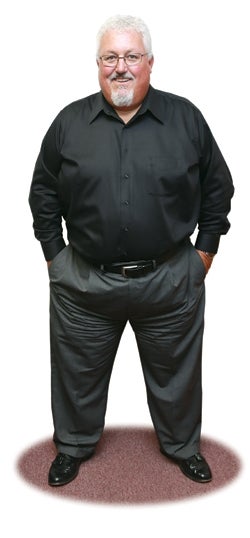
Running a restaurant can be compared with a chef who’s cooking several meals, each one different and occupying one burner. You need to focus on customer service, food quality, health, training, taxes and employment law, among other areas. A key advocate for Bay State restaurants is the Massachusetts Restaurant Association, based in Southborough. The organization’s new CEO, Bob Luz, is an industry veteran who has witnessed many changes over his career.
You’ve been in the restaurant business a long time. What’s the most significant change you’ve seen in the industry?
Over time, one of the biggest changes that has really impacted the (industry) is the fact that TV has come to play such a prominent role. We have a much higher educated dining guest today than we’ve ever had before. I think that makes a big difference in the experience that they get in restaurants.
How has that especially played out in Massachusetts, and by extension, Central Massachusetts?
When the consumer is a little bit more educated, their level of expectation … has risen. So, all of our restaurant operators, all of our food-service operators, have had to take their game up a little bit more. When you walk in, you’re going to have hosts who are there to welcome you and greet you warmly and enthusiastically, because that’s the only way that we can separate ourselves from location to location. You’re going to have waiters, waitresses or counter help who have a much higher level of sophistication about the food. “Farm to table” is a big trend right now. You see more operators who are kind of following that through, so knowing where the products come from and giving that information to the guest is really important.
How do you see things going over the next several years?
There’s a continuing trend, especially with the younger demographics, (in that) “quick casual” has really come on to the scene pretty dramatically, and that’s impacting a lot of the casual-dining restaurants. So you have a lot of limited-service restaurants, or counter-service restaurants, where they’re featuring fresh products prepared to order, very quickly (and) at a fair price. That has really had an impact to the casual-dining restaurants that are trying to become more “quick casual” in their approach.
How much have legal and regulatory issues impacted the way restaurant owners must run their businesses?
The legislative agenda is probably second to none right now in terms of what’s going to impact the restaurant industry. The largest concern is the Affordable Care Act. That’s having a dramatic impact on (the entire) retail arena. No. 2: There’s a push in the Legislature to raise the minimum wage and tied into that is, potentially, the more than doubling of the tip wage. In the full-service restaurant arena, you’re allowed to pay servers and bartenders sub-minimum wage … because they get a large part of their income from gratuities. In Massachusetts, over the last 11, 12 years probably, that wage (has) gone from mid-$7 an hour to almost $13.50 an hour, and that’s the highest in the nation. So, to think that there would be potentially a huge increase would have a pretty dramatic, negative effect on our industry.
You’ve spent a good chunk of your career in human resources roles. What’s the toughest issue restaurant owners face today when it comes to the people who work for them?
First, it’s selecting the right individual to work for you. We all buy from the same purveyors, we cook on the same type of equipment. What can really have the edge is the team member who’s face-fronting the guests and the ability to best serve them, and give them hospitality that’s beyond reproach. So I think hiring great people is No. 1; No. 2 is training those great people. n
Video

